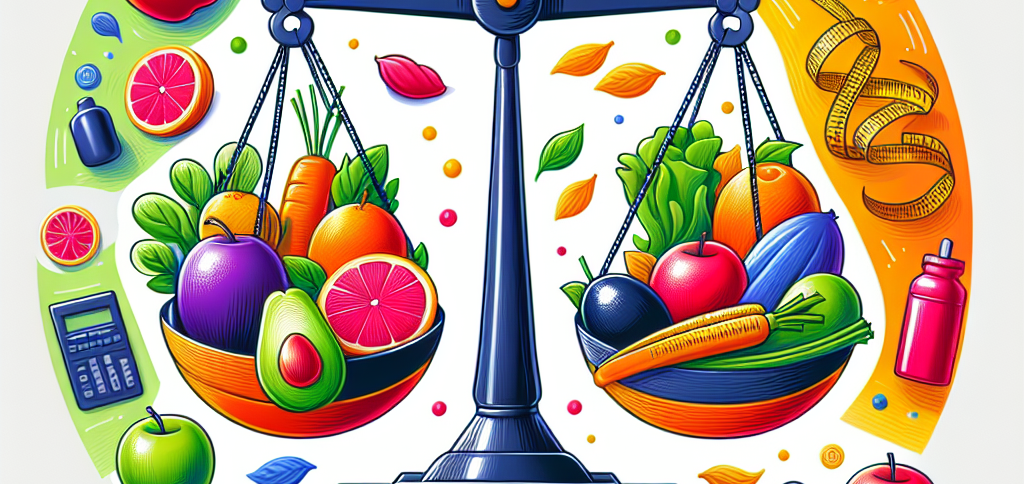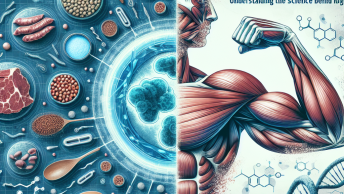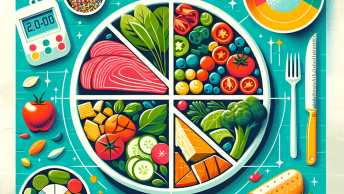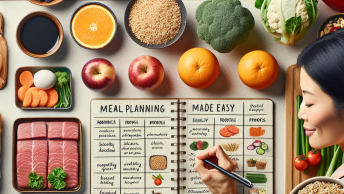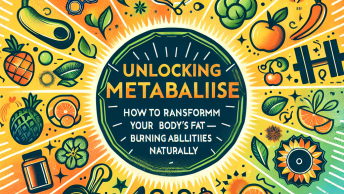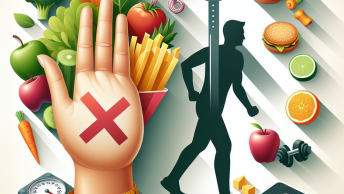Are you looking to shed those extra pounds and adopt a healthier lifestyle? A fat loss diet is not only about cutting calories but making smart choices that support your body. In this article, we will explore ten essential tips that can help optimize your fat loss journey. These tips emphasize balance, nutrition, and a sustainable approach to dieting. Let’s dive in!
1. Understand Your Basal Metabolic Rate (BMR)
Before beginning any diet, it’s crucial to understand your Basal Metabolic Rate (BMR) — the number of calories your body requires at rest to maintain essential functions. Use an online calculator to determine your BMR, considering factors such as age, gender, weight, and height. This foundational knowledge helps tailor your caloric intake and set realistic weight loss goals.
2. Set Realistic Goals
Setting achievable goals is key to staying motivated throughout your weight loss journey. Instead of aiming for dramatic changes, consider aiming for a weight loss of 1-2 pounds per week. This is generally considered safe and sustainable. Short-term goals, like fitting into a particular pair of jeans or completing a challenge, can also keep you motivated.
3. Focus on Whole Foods
Incorporate whole, nutrient-dense foods into your diet. Fruits, vegetables, whole grains, lean proteins, and healthy fats should form the foundation of your meals. These foods are generally low in calories and high in essential nutrients, helping to keep you full and satisfied. Avoid processed snacks and sugary treats that offer little nutritional value and contribute to weight gain.
4. Monitor Your Portion Sizes
Even healthy foods can lead to weight gain if consumed in excessive amounts. Use smaller plates and bowls to help control portion sizes, and learn to listen to your body’s hunger cues. Eating slowly and mindfully allows your brain to register when you’re full, reducing the chances of overeating.
5. Stay Hydrated
Water is essential in any fat loss diet. Staying well-hydrated not only helps your body function optimally, but it can also help control hunger. Often, we mistake thirst for hunger. Make a habit of drinking water throughout the day; aim for at least 8 glasses of water. You can also include herbal teas and infused water to keep things interesting.
6. Incorporate Protein in Every Meal
Including protein in your meals plays a vital role in weight loss. Protein takes longer to digest, keeping you feeling fuller for longer. It also aids in muscle maintenance, which is important for metabolism. Aim for lean protein sources such as chicken, turkey, fish, legumes, and low-fat dairy. A protein shake can also be a convenient option, especially post-workout.
7. Don’t Skip Breakfast
Many people believe skipping breakfast is an effective fat loss strategy, but it can actually backfire. Eating a healthy breakfast kickstarts your metabolism and gives you energy. Opt for options rich in protein and fiber, such as scrambled eggs with spinach or oatmeal topped with fruits and nuts.
8. Utilize Smart Snacking
Snacking can be part of a successful fat loss diet if done wisely. Choose snacks that are low in calories but high in nutrients. Fruits, yogurt, nuts, and veggie sticks with hummus are excellent options. View snacks as an opportunity to boost your nutrient intake rather than a reason to indulge in junk food.
9. Plan Your Meals
Meal prepping can be a game-changer for weight loss. When you plan your meals in advance, you’re less likely to make unhealthy choices. Dedicate a day each week to prepare meals and snacks. This ensures that you’ll have healthy options available even when life gets busy.
10. Consider Seeking Professional Guidance
While many people can successfully navigate their own fat loss journey, some may benefit from professional guidance. A registered dietitian or nutritionist can provide personalized advice tailored to your specific needs and lifestyle. If you’re serious about your fat loss goals, consider investing in professional help to create a plan that works for you.
Conclusion
Embarking on a fat loss diet doesn’t mean you have to sacrifice enjoyment or deprive yourself. Instead, it’s about making informed, balanced choices that you can sustain over the long term. By implementing these ten essential tips, you can make strides towards your weight loss goals while maintaining a healthy relationship with food.
For additional resources and guidance on effective dieting strategies, Click Here to learn more about what you can do to achieve your fat loss goals. Embrace the journey, stay positive, and focus on progress rather than perfection!
